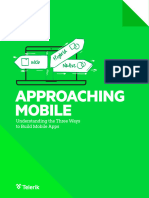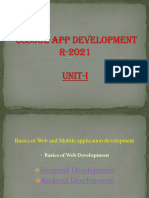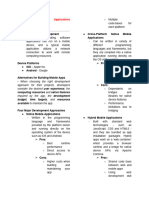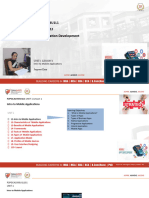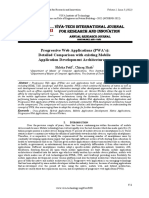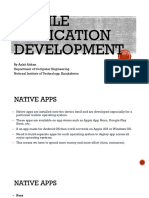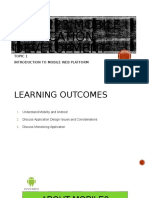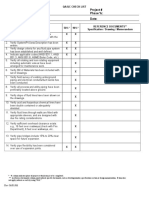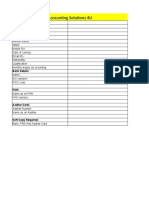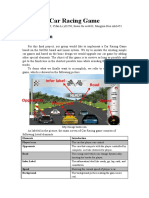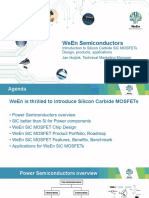0% found this document useful (0 votes)
38 views14 pagesMobile App Development Basics
Uploaded by
ogandofrancis16Copyright
© © All Rights Reserved
We take content rights seriously. If you suspect this is your content, claim it here.
Available Formats
Download as PPTX, PDF, TXT or read online on Scribd
0% found this document useful (0 votes)
38 views14 pagesMobile App Development Basics
Uploaded by
ogandofrancis16Copyright
© © All Rights Reserved
We take content rights seriously. If you suspect this is your content, claim it here.
Available Formats
Download as PPTX, PDF, TXT or read online on Scribd
/ 14










